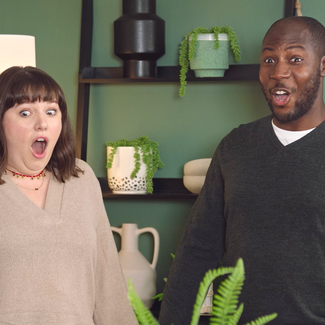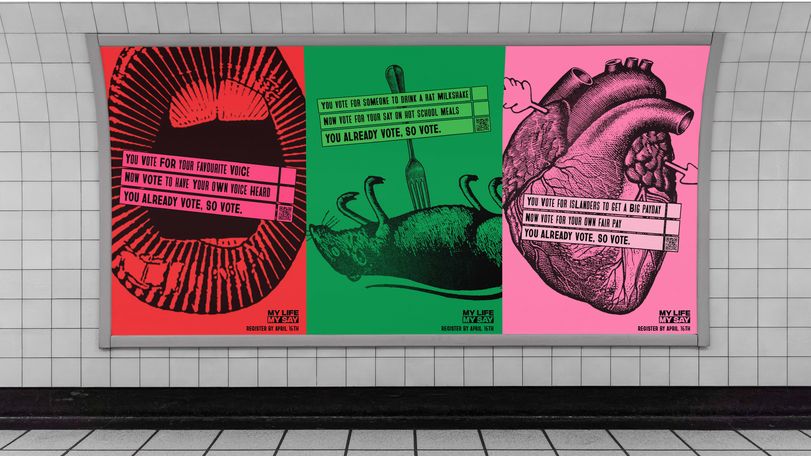
Three Things We Learned From... Ogilvy's Behavioural Annual 2024
We share a few of the insights to come out of the case studies featuring in this year's publication, including campaigns for the Mayor of London and Argos
22 October 2024
Despite being a fundamental ingredient of advertising – to influence habits and drive reactions - behavioural science is still seen by many as a 'nice to have;, rather than a crucial element of campaign development.
A marketer might think they understand their customer, but without putting in the hard yards of research then they can never truly be sure that they are right. And being wrong is an expensive mistake to make. They also want measurable impact from their advertising – what is the return on investment but, also, how can it be a surefire activation?
And it is a discipline that works across all business sectors from FMCG to tech to B2B. In short, learning about the core consumer base is vital to produce great work that resonates.
“Marketers must start thinking like behavioural scientists - and it’s high time we reimagine entire marketing teams as a behaviour change department,” says Dan Bennett consulting partner and UK Lead, Behavioural Science for Ogilvy.
“Understanding human behaviours – and then being able to change them – has become critical in demonstrating to boardrooms with tighter budgets that marketing remains the ultimate lever of brand growth. It's the ultimate measure of success,” he adds.
In a society as divided and fast-moving as today, there can be few certainties left for marketers to cling onto in their roles, so keeping up to speed with their core consumer base must be a constant priority.
“Great work often doesn’t have much in common. It doesn’t look alike. It doesn’t sound alike. And nor should it,” continues Matt Waksman, Ogilvy UK’s head of strategy, “But when we look across some of our most effective and creative work, there’s a common factor at play. Whether we’re giving men the tools to tackle misogyny or defending Philly’s place in the basket from supermarket own-brands, there’s a fusion of behavioural science and creative strategy in its foundation. This red thread of strategic collaboration is what makes our work unique, and designed for impact.”
Ogilvy Consulting has released its latest Behavioural Science Annual which offers insights into: tackling low young voter registrations during an election year for charity My Life My Say; the transformation of Argos into an inspiring brand by tapping emotional resonance; and working with the Mayor of London to utilise the word ‘maaate’ as an effective lever again misogyny in young men.
Here are three things we learned from the annual.
Coupling Love Island and British politics
Research discovered that just under one-third of 18-34-year-olds in London were not registered to vote. How could more younger people be encouraged to participate in local elections? Discovering that more than two-thirds (68 per cent) of Gen Z were more likely to vote in reality shows than in an election, stars from ITV-series Love Island, Britain’s Got Talent and Big Brother were recruited to encourage voter participation in elections through the ‘You Already Vote, So Vote’ campaign’.
This resulted in 113,044 people from 18-34 registering to vote in just one day when the campaign went live.
Insight: We often think that for the big decisions in life, we need to appeal to our rational reasons or show tangible benefits of the behaviour - but in practice, it can be just about showing that it’s something that people already do, just in different contexts.
The one word that made men speak up
Working for the Mayor of London, Ogilvy Consulting discovered that 85 per cent of men had the intention to call out misogyny but most didn’t know how to do it. With 97 per cent of women having experienced sexual harassment, the partnership set about devising a way to help change male behaviour.
The first campaign ‘Have a Word’ was developed following extensive real world immersion within male environments such as pub, barber shops and gyms to understand the dynamics amongst men.
It was decided that a word or gesture that would help them break the silence but not the social bond was needed – with “mate” the chosen response. This was then communicated through an outdoor poster campaign, as well as in partnership with publisher Ladbible, a series of editorials on mainstream publications and working with ambassador and comedian Romesh Ranganathan.
‘Maaate’ drove willingness and confidence among more men to intervene, with confidence growing from 38 per cent to 54 percent and willingness, from 73 per cent to 81 per cent.
Insight: Get away from your desk. Physically go where your audience is. Observe their body language. Watch them interact with each other, your topic or your product. The quality, and therefore value of insight is far, far higher. Ride the storm.
Helping Brits design their homes with their hearts
Argos wanted to move away from being seen as a retailer that sells distress purchase items for when consumers needed something in a last-minute emergency. It asked Ogilvy Consulting to help it convince Brits “to design their homes with their hearts”.
To achieve this, the team considered how to get people to decorate using their gut feelings around colours, textures and styles. This meant turning to Emotional Resonance Testing, which, using wrist trackers would measure the love and reward hormones of a family's reactions to a range of products, styles and colours. It also recruited interior design influencer Siobhan Murphey to experience the same testing.
This resulted in the ‘Make Yourself At Home’ campaign – a six-month content series that aimed to help more of the nation’s homeowners to get rid of their 'greige' [not quite grey, not quite beige] items and design their home to truly reflect their personalities.
Insight: Relying on explicit research methods—like surveys and focus groups—will give you an answer, but it might not be particularly useful, true, or predictive. Responses will always be coloured by human biases. With the latest technology, it is now possible to tell what people really want.






